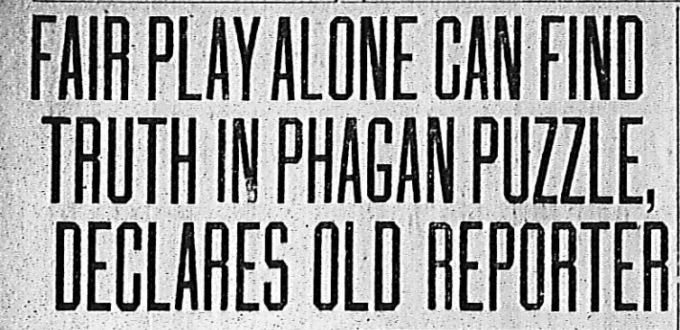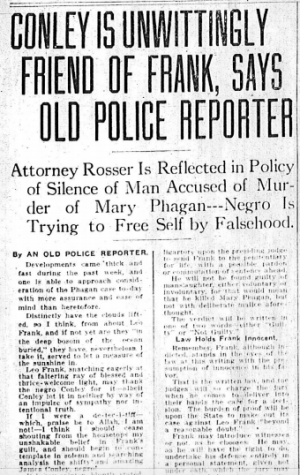Another in our series of new transcriptions of contemporary articles on the Leo Frank case.
Atlanta Georgian
August 3rd, 1913
Negro’s Testimony Now Supremely Important
Both Sides Stake Their All on His Evidence
STATE FORGES CHAIN TO TAX ALL THE INGENUITY OF DEFENSES LEGAL ARRAY
First Week of Battle Has Fixed the Time Almost Exactly According to Theory of the Solicitor—Doctors’ Testimony His Important Bearing.
BY AN OLD POLICE REPORTER.
There are two tenable theories of the manner in which little Mary Phagan met her tragic death in the National Pencil Factory on Saturday, April 26.
Either she was murdered by Leo Frank, as charged in the indictment, or she was murdered by James Conley, the negro sweeper, employed in the factory.
If there is another theory, it has not been advanced.
The theory that Frank killed the girl is the one set up by the State; the theory that Conley killed her is the one to be set up by the defense.
Which, if either, is the true theory?
Continue Reading →


 Another in
Another in 

